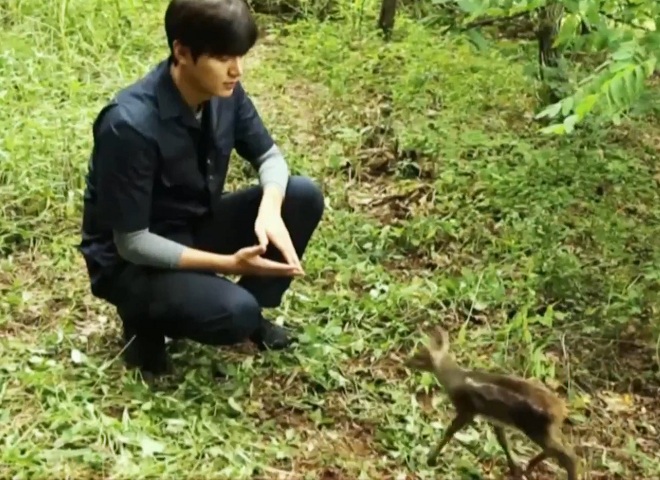
The Legend of the Blue Sea actor Lee Min-ho opened up about his experience of shooting in the Korean Demilitarized Zone, for the MBC documentary 'DMZ, The Wild.' Despite what the name suggests, the DMZ is actually a heavily militarized zone across the Korean Peninsula that separates North and South Korea.
In a press conference for nature documentary 'DMZ, The Wild,' the 'City Hunter' actor said he felt sad for the soldiers posted in the area. "The soldiers at the DMZ are all very young and I feel guilty about that," Koreaboo quoted him as saying.
The heavily militarized area, which is regarded as one of the most dangerous places in the world, due to the always brewing tension between North and South Korea, is actually a safe haven for wildlife that thrives on the 250 kilometres long, and about 4 kilometres wide strip of land. MBC's documentary featuring Lee Min-ho explores the wildlife living within this piece of land.
The official website for MBC, mbc.co.kr, gives a synopsis for another documentary on the subject called 'Wildlife in the DMZ' that does not star Lee Min-ho. "As a heavily guarded area that is strictly off limits to any trespassers, the DMZ is a boundary zone that exists in the last two divided countries in the world. The DMZ is a reminder to all Koreans of the divided Korean peninsula. On the east end of the DMZ, salmon have returned near the Myungpa River while on the west end, spotted seals have inhabited the waters around Baekryeong Island."
"The zone has become a treasured ecological site and a natural reserve for wildlife. Due to its unique plant and animal life, the DMZ is a place of interest among ecologists around the world. The wild animals that inhabit the DMZ are caught on HD cameras while the environmentally friendly practices of the South Korean soldiers in the area are also captured in high definition. The documentary includes this and much more to show how nature flourishes in one of the places that symbolize the sad division of the Korean peninsula," the synopsis reads.
For Lee Min-ho, who is preparing to enlist in the mandatory military service in South Korea, known as Conscription, it's mostly about the human equation though. He said: "The fact that it was the DMZ was only the second reason I wanted to do DMZ, The Wild. Many people are curious about the land where humans have not been in 60 years. When I left for the trip I was very curious but when I arrived, I felt more nervous. Since the 2 sides are still in a state of war, I was tense the moment I stepped into the DMZ since I was very close to North Korea."
Lee Min-ho's passion for the subject at hand became apparent when it was learnt that he did the documentary for free. Kim Jung Min, the program director said: "Lee Min Ho has decided to appear on this documentary without receiving an appearance fee. I was honestly worried about the money aspect of this but he was more than willing to decide that he did not want an appearance fee."
Koreaboo points out that the DMZ area became a natural sanctuary because no human settlements are allowed in the region since 1953, when the border was created by an agreement between North Korea, China and the United Nations.
'DMZ, The Wild' will air on MBC network, on April 3 at 11:10 pm KST. Watch the trailer below.


